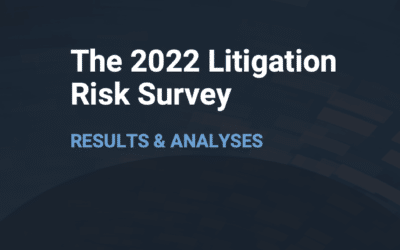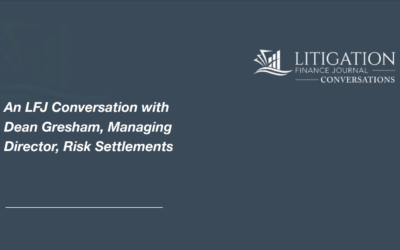In early February 2021, the 11th Circuit issued a significant ruling, holding in Cherry v. Dometic Corp. that class representatives need not “prove the existence of an administratively feasible method to identify absent class members as a precondition for [class] certification.” Unquestionably, Cherry is reverberating throughout the 11th Circuit, with class action defense lawyers losing a favorite tool to defeat class certification.
What was Cherry about?
Dometic Corporation manufactures and sells gas-absorption refrigerators, which are used in RVs. Unlike regular refrigerators, Dometic’s could work without electricity by relying on a chemical solution.
The plaintiffs alleged that each refrigerator was sold with a design defect, which both increased the risk of fire and ultimately ruined each refrigerator’s functionality. Plaintiffs’ theory was that everyone who bought a Dometic refrigerator overpaid.
Plaintiffs eventually moved for class certification under Rule 23(b)(3), proposing a class consisting of “all persons who purchased in selected states certain models of Dometic refrigerators that were built since 1997.” Dometic opposed.
What did the parties argue about ascertainability?
In the trial court, plaintiffs argued that the proposed class was ascertainable because it could be readily identified through:
- Dometic’s sales and warranty registration records;
- Prior refrigerator recall programs;
- DMV records; and
- Customer affidavits.
In response, Dometic argued that because it sold its refrigerators to RV manufacturers and dealers, rather than to the ultimate consumers, its sales records would not help identify class members. And Dometic argued that both past recall programs and DMV records were incomplete and unhelpful.
How did the trial court rule?
The trial court sided with Dometic and denied class certification, finding that the class was not ascertainable. The court relied on an unpublished 11th Circuit opinion, Karhu v. Vital Pharms., Inc., for the proposition that “in order to establish ascertainability, the plaintiff must propose an administratively feasible method by which class members can be identified.” And by administratively feasible, the court meant a “manageable process that does not require much, if any, individual inquiry.” The court went on to state that when a plaintiff proposes to identify class members through a defendant’s records, the plaintiff “must establish that the records are in fact useful for identification purposes, and that identification will be administratively feasible.”
Why did the 11th Circuit Reverse?
The 11th Circuit reversed because it concluded that administrative feasibility “is not a requirement” for class certification. To get there, the 11th Circuit asked: does “circuit precedent or the text of Rule 23 establish[] administrative feasibility as a requirement for class certification.”[1] The answer to both? No.
11th Circuit Precedent
With respect to circuit precedent, the 11th Circuit found that a district court must determine that a proposed class is “adequately defined and clearly ascertainable” before it may consider whether the requirements of Rule 23(a) are satisfied. And while the court acknowledged—as it had to—that the word “ascertainable” is not found in the text of F.R.C.P. 23, the court when on to say that the text includes what is implicit, and “ascertainability—at least as traditionally understood—is an implied prerequisite to the requirements of Rule 23(a).”
But when it comes to ascertainability, the court found that what matters is whether the class is “capable of being” determined; not whether plaintiffs have proven administrative feasibility. In other words, “membership can be capable of determination without being capable of convenient determination.” With no precedent governing, the court then turned to the text of Rule 23(a) and (b) to determine if either requires proof of administrative feasibility.
The Text of FRCP 23
The question before the court was whether the text of Rule 23(a) or (b) “necessarily requires proof of administrative feasibility.” For FRCP 23(a), the court easily answered no. “Neither foreknowledge of a method of identification nor confirmation of its manageability says anything about”:
- The qualifications of the class representatives;
- The practicability of joinder of all members; or
- The existence of common questions of law or fact.
For FRCP 23(b), however, the court conceded that administrative feasibility “has relevance” for the determination, under FRCP 23(b)(3), of whether a class can be manageable. Nevertheless, because Rule 23(b)(3) requires a balancing test, the 11th Circuit concluded that it “does not permit district courts to make administrative feasibility a requirement.” To put a finer point on it, the court instructed future courts to apply the following test: will the class action “create relatively more management problems than any of the alternatives,” not “whether it will create manageability problems in an absolute sense.” And the court warned that manageability problems will “rarely, if ever, be in [themselves] sufficient to prevent certification.”
What Impact will Cherry Have on Class Actions in the 11th Circuit?
Cherry likely sounds the death knell for a defendant’s chances of prevailing at class certification in the 11th Circuit by arguing that a proposed class is not ascertainable, with class action defense lawyers losing a favorite tool to defeat class certification. As such, practically overnight, the 11th Circuit has become a more hospitable location for plaintiffs seeking to file a class action. Indeed, the 11th Circuit now joins Second, Sixth, Seventh, Eighth, and Ninth Circuits in rejecting proof of administrative feasibility as a prerequisite for certification. Whether the Supreme Court ultimately confronts this now well-established Circuit split (with the First, Third, and Fourth Circuits requiring proof of administrative feasibility) remains to be seen.
***
Are you are looking to resolve a class action on a claims-made basis? If so, contact us to learn how we can help you to mitigate, cap, and transfer the financial risk of settlements in existing class action litigation.







